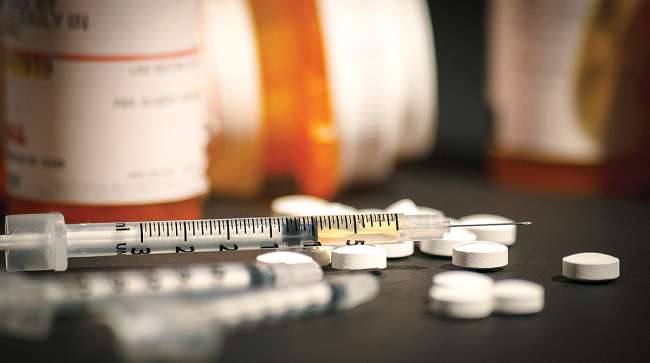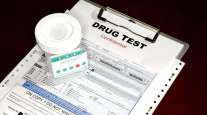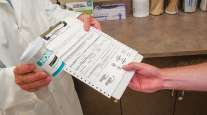Senior Reporter
Board Proposes Adding Fentanyl to Drivers’ Drug Testing List

[Stay on top of transportation news: Get TTNews in your inbox.]
A federal drug advisory group has begun the cumbersome process of placing fentanyl on the list of drugs to test federal safety-sensitive employees and truck drivers for drug use.
While it is clear that fentanyl is an “emerging drug of concern,” it may take up to a year or more for federal drug officials with the Substance Abuse and Mental Health Services Administration to plow through the process.
SAMHSA is a subagency of the U.S. Department of Health and Human Services, the agency responsible for overseeing drug testing policy protocols.
“We see a lot more fentanyl in nonregulated samples, greater than 1.9%,” SAMHSA Drug Testing Advisory Board Chairman Ron Flegel said at a Dec. 5 DTAB meeting. “So I think it’s important and that everyone is aware that it is an analyte we’re looking to add to the drug testing panel.”
An analyte is a chemical substance that is the subject of a chemical analysis.
“We’ve had numerous conversations, numerous presentations leading up to this,” Flegel said. “So I don’t think it’s any surprise to the board that we’re proposing to add fentanyl to the drug testing panel.”
In a Federal Register announcement in October, SAMHSA said it was taking action on the Fighting Opioid Abuse in Transportation Act, which calls on HHS to determine whether adding fentanyl to the analyte table is justified based on the reliability and cost-effectiveness of mandatory testing.
“Fentanyl accounts for a large proportion of overdose deaths in the United States and is therefore an important public safety concern,” said the SAMHSA announcement. “Furthermore, fentanyl is increasingly used as a stand-alone substance of abuse, not in conjunction with heroin and other substances.”

Flegel
The test panel also would include the chemical norfentanyl, an important component of identifying fentanyl users when urine is the specimen matrix. Information provided by HHS-certified laboratories in 2023 indicated that 84% of the laboratories analyzed unregulated workplace specimens for fentanyl and/or norfentanyl. All had the ability to analyze urine specimens for fentanyl with sufficiently sensitive detection limits using commercially available immunoassay kits and confirmatory test instrumentation commonly used in HHS-certified laboratories.
SAMHSA is seeking public comments for 30 days after the Dec. 5 meeting. However, the DTAB said it will not be making comments public until its next meeting, which is expected in the spring.
In the meantime, SAMHSA will be working on the details of its new fentanyl protocols with its federal drug partners, including the Department of Transportation, Nuclear Regulatory Commission and the Department of Defense.
DTAB members also were updated on the latest developments on its revised rulemaking that would allow drug testing using hair samples. Flegel said the agency’s revision of the proposed rule remains under the review of the White House Office of Management and Budget.
The proposed rule was published on Sept. 10, 2020, after a congressional mandate passed into law in December 2015.
He said delays have been caused in part as regulators have weighed the possible impact of hair color and external contamination of tests. Flegel did not say when a hair testing final rule is expected to be published.
Want more news? Listen to today's daily briefing above or go here for more info
In addition, Flegel said there are ongoing studies into the increasing legalization of marijuana in many states. The federal government has remained steadfast about not allowing the recreational and medical use of marijuana among employees, nor does the DOT allow truck drivers to use pot.
“The question of what’s going to happen to marijuana is on everyone’s mind,” Flegel said. “It will be an important issue for federal drug guidelines.
“What will the future of the federal drug testing program look like if marijuana is descheduled or rescheduled? Will the federal drug testing program continue to test for marijuana? Right now we don’t know what the outcome of that will be.”




